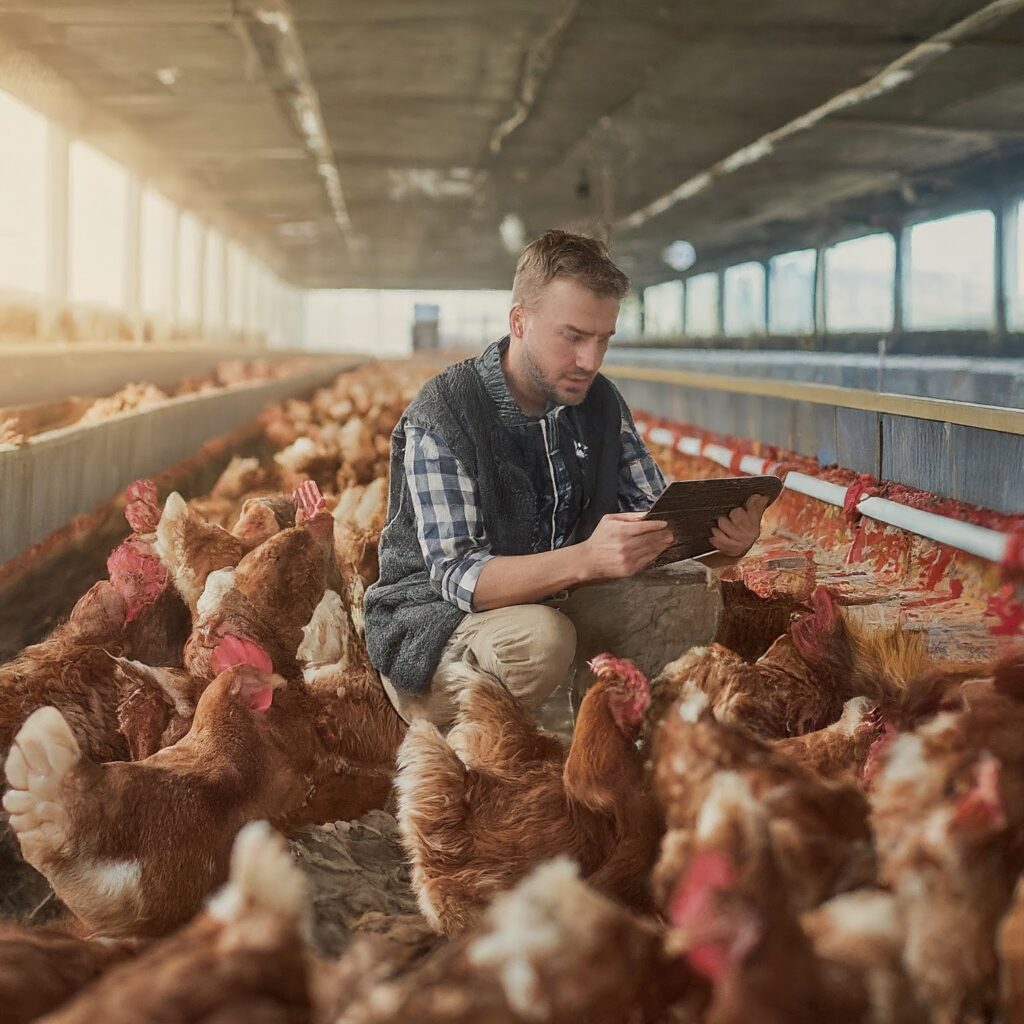Secrets to Achieving Exceptional Eggshell Quality
Achieving exceptional eggshell quality is a complex feat that requires a deep understanding of various factors that contribute to it. From the importance of a well-balanced diet infused with vital nutrients to the critical role of calcium supplementation, poultry farmers are constantly striving to unlock the secrets behind superior eggshell quality.
However, there is much more to this topic than meets the eye. In this discussion, we will explore the impact of housing conditions, effective disease management, proper hydration, stress reduction, and vigilant monitoring with comprehensive record-keeping.
By uncovering these secrets, a world of possibilities opens up for poultry farmers, enabling them to enhance the quality of their eggshells and optimize the overall productivity of their flocks.
Nutrition and Diet
Proper nutrition and balanced diets are fundamental for achieving exceptional eggshell quality in laying hens. Ensuring that hens receive balanced nutrients and essential vitamins is crucial in promoting strong and robust eggshells.
Calcium and vitamin D3, in particular, play a vital role in eggshell strength. Formulating the ideal diet for layers is critical, as it directly impacts the quality of the eggs produced.
To achieve optimal eggshell quality, it is important to maintain the ideal calcium-to-phosphorus ratio through various supplementation methods. Adequate calcium supplementation is essential for sturdy eggshell formation.
Seasoned poultry farmers understand the importance of the Calcium Connection and employ proper supplementation techniques to ensure strong eggshells.
Calcium Supplementation
In the pursuit of robust eggshells, calcium supplementation plays a pivotal role in ensuring optimal eggshell quality. Calcium is essential for the formation and strength of eggshells. However, the effectiveness of calcium supplementation depends on factors such as calcium absorption and supplement dosage.
Calcium absorption is influenced by various factors, including the age and breed of the layers, as well as the calcium-to-phosphorus ratio in their diet. It is important to formulate the ideal diet for layers to maintain this ratio.
Seasoned poultry farmers employ various methods to supplement calcium, including providing calcium-rich feed or adding calcium supplements to the water. The dosage of calcium supplements should be carefully monitored to avoid negative effects on eggshell quality.
Housing Conditions
To ensure optimal eggshell quality, the housing conditions in which the layers are kept play a significant role.
Impeccable ventilation is crucial for maintaining a healthy environment for the layers. Proper ventilation helps remove excess heat, moisture, and ammonia, which can negatively impact eggshell quality.
Strategic lighting is also important as it influences the laying patterns and overall well-being of the layers. Adequate lighting duration and intensity can promote eggshell strength and production.
Comfortable nesting areas are essential for content and stress-free layers, which ultimately contribute to exceptional eggshell quality.
Disease Management
Disease prevention is of utmost importance in ensuring excellent eggshell quality in poultry farming. Implementing biosecurity measures and adhering to vaccination schedules are essential in managing diseases and safeguarding the health and productivity of the flock. Accomplished farmers understand that disease-free flocks result in healthier and superior eggs.
Biosecurity measures such as strict hygiene practices, controlled access to the farm, and proper waste management help prevent the introduction and spread of diseases. Vaccination schedules, on the other hand, ensure that the birds are protected against specific diseases that can negatively impact eggshell quality.
Hydration and Water Quality
Maintaining optimal hydration and ensuring high-quality water are crucial factors in enhancing eggshell quality and promoting the overall health and productivity of poultry flocks.
Water management techniques play a significant role in providing clean and uncontaminated water to the layers. Clean water is essential as it helps in the proper digestion and absorption of nutrients, which in turn contributes to the formation of strong and sturdy eggshells. Contaminated water can introduce harmful pathogens and toxins into the birds’ system, leading to health issues and compromised eggshell quality.
Therefore, it is imperative for farmers to regularly monitor and maintain the cleanliness of water sources, while also implementing appropriate water treatment methods to ensure the delivery of clean and safe water to their poultry flocks.
Stress Reduction
Implementing effective stress reduction strategies is essential for optimizing eggshell quality and promoting the overall well-being and productivity of poultry flocks. Stress management techniques play a crucial role in ensuring the production of high-quality eggs.
Environmental factors such as temperature fluctuations, overcrowding, and exposure to pathogens can significantly impact the stress levels of laying hens. By minimizing these stressors, farmers can enhance eggshell quality.
Providing adequate space, proper ventilation, and comfortable nesting areas can help reduce stress in the flock. Additionally, implementing biosecurity measures and vaccination schedules to prevent diseases can contribute to stress reduction.
Stress reduction not only improves eggshell quality but also enhances the overall health and performance of the flock, leading to increased productivity and profitability.

Monitoring and Record-Keeping
Vigilant monitoring and comprehensive record-keeping are integral components of optimizing eggshell quality and ensuring the long-term success of poultry farming operations. Data analysis and performance tracking are essential for identifying trends, detecting issues, and implementing proactive measures.
By closely monitoring various parameters such as feed consumption, egg production, shell quality, and flock behavior, farmers can gain valuable insights into the health and productivity of their flocks. These insights enable timely interventions and adjustments in nutrition, management practices, and disease prevention strategies.
Comprehensive record-keeping allows for the comparison of historical data, identification of patterns, and evaluation of the effectiveness of implemented measures. Modern tools like SmartBird streamline data tracking and analysis, facilitating informed decision-making for superior eggshell quality.
Through diligent monitoring and meticulous record-keeping, poultry farmers can unlock the secrets to achieving exceptional eggshell quality.
Conclusion
In conclusion, achieving exceptional eggshell quality in poultry farming requires a holistic approach that encompasses various factors.
These factors include nutrition, calcium supplementation, housing conditions, disease management, hydration and water quality, stress reduction, and vigilant monitoring with comprehensive record-keeping.
By implementing a well-balanced diet infused with vital nutrients and providing adequate calcium and vitamin D3, poultry farmers can improve the quality of their eggshells.
Maintaining optimal housing conditions is also crucial in ensuring the health of the flock and the quality of the eggs.
Preventing diseases through proper biosecurity measures and regular vaccinations is another essential aspect of achieving exceptional eggshell quality.
Proper hydration and ensuring high-quality water sources contribute to the overall health of the birds and the quality of the eggs.
Stress reduction techniques, such as minimizing disturbances and providing a calm environment, can also positively impact eggshell quality.
Consistently monitoring and recording data allows farmers to identify any issues or trends and make necessary adjustments to optimize their flock’s productivity.
